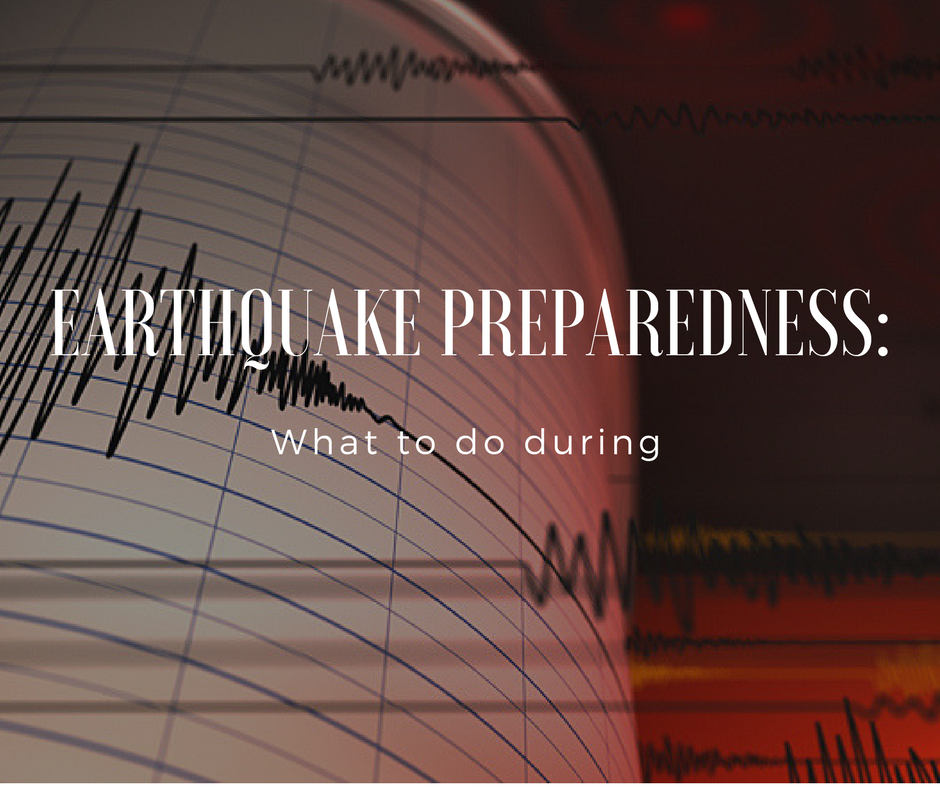Earthquake Preparedness: What to do During
by Stephanie Koathes Mar 19, 2018

Earthquakes are terrifying. The idea of the ground you walk on suddenly heaving beneath your feet is the stuff of nightmares. While it’s not yet possible to predict when or where an earthquake will strike, there are ways to help keep you safe when one does happen.
Here’s what to do during an earthquake:
- Stay where you are! Do not try to run outdoors if you’re inside and vice versa. The exterior of a building is one of the most dangerous places to be during an earthquake. Windows, facades and architectural details are often the first parts of the building to collapse.
- Duck, cover and hold on. Drop to the floor and protect your neck and head with your hands and arms. Try to get under a table or desk and hold tight.
- If you cannot shelter under furniture, move against an interior wall or corner. If there is a book, pillow, tray or other protection at hand, use it to protect your head and neck. In modern homes doorways are no stronger than any other parts of the house. While there is likely nothing to fall on you in a doorway, you may not be able to brace yourself in the door during strong shaking.

- If you are in bed, stay there, cover your head, curl up and hold tight.
- If you are outdoors find a clear spot and duck down, cover your head and neck. Stay away from high buildings, walls, poles, power lines, trees, streetlights and other structures that may fall.
- Move as little as possible – most injuries during earthquakes occur because of people moving around, falling and suffering sprains, fractures and head injuries.
- If you’re in a vehicle, pull over to a clear location and stop! Stay away from bridges, streetlights, poles and power lines if possible. Remain in the vehicle with your seat belt fastened until the shaking stops. In the event that a power line falls on the vehicle, wait for help, do not get out.
For more information on how to protect your home from an earthquake check out this article.
Sources: Red Cross, ODPEM, USGS Earthquake Hazards Program








